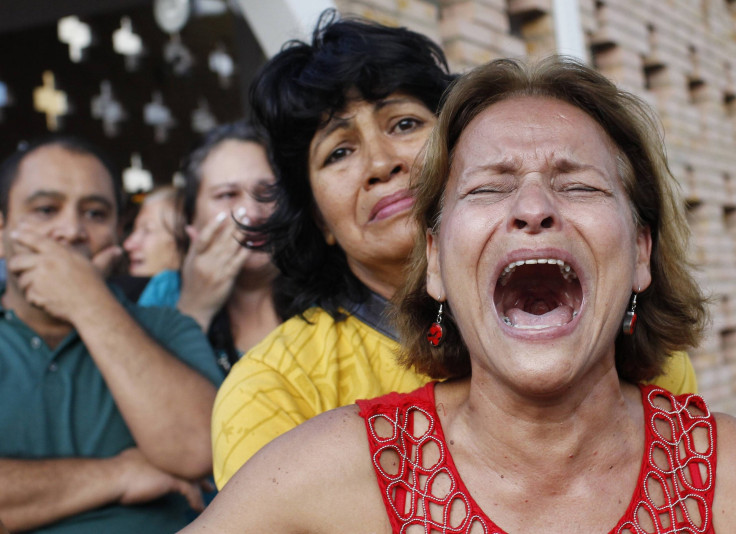Hugo Chavez Dead: World Reaction To The Death Of Venezuelan President

Immediate world reaction to the death of Venezuelan President Hugo Chavez has been sorrowful, including from one congressman in the U.S., a country often at the receiving end of Chavez's famous barbs, who praised the late head of state. But adversaries of the controversial leader have yet to weigh in.
President Barack Obama said the United States is interested in starting a new relationship with Venezuela.
"At this challenging time of President Hugo Chavez's passing, the United States reaffirms its support for the Venezuelan people and its interest in developing a constructive relationship with the Venezuelan government," the president said in a statement.
"As Venezuela begins a new chapter in its history, the United States remains committed to policies that promote democratic principles, the rule of law, and respect for human rights."
U.N. Secretary-General Ban Ki-Moon said he was “conveying condolence” to Chavez’s “family and the people of Venezuela."
Not surprisingly, Venezuelan ally Russia was mourning the death of Chavez. Moscow's ambassador to the U.N., Vitaly Churkin, said in a statement that the president’s death was a “tragedy." “He was a great politician for his country and for the world as a whole," Churkin said.
U.S. Rep. Jose Serrano, D-N.Y., is taking heat on Twitter after he expressed his condolences for Chavez, who died following a two-year battle with cancer.
“Hugo Chavez was a leader that understood the needs of the poor. He was committed to empowering the powerless. R.I.P. Mr. President,” tweeted Serrano, whose Bronx district is heavily Hispanic.
Serrano, who met Chavez in the Bronx, later expounded on his views saying he “mourned the death of President Hugo Chavez of Venezuela.”
“I met President Chavez in 2005 when he came to my district at my invitation,” Serrano said in a statement. “His focus on the issues faced by the poor and disenfranchised in his country made him a truly revolutionary leader in the history of Latin America. He understood that after 400 years on the outside of the established power structure looking in, it was time that the poor had a chance at seeing their problems and issues addressed. His core belief was in the dignity and common humanity of all people in Venezuela and in the world.
“President Chavez was a controversial leader,” he continued. “But at his core he was a man who came from very little and used his unique talents and gifts to try to lift up the people and the communities that reflected his impoverished roots. He believed that the government of the country should be used to empower the masses, not the few. He understood democracy and basic human desires for a dignified life. His legacy in his nation, and in the hemisphere, will be assured as the people he inspired continue to strive for a better life for the poor and downtrodden.”
While Chavez was widely reviled in the U.S., where many Americans view him as a dictator, he was revered by Venezuela’s poor.
Chavez was also loved throughout much of South America, including Argentina.
“My regards to the Venezuelan people and the family of Comandante Hugo Chavez,” tweeted Argentinian politician Alicia Kirchner, sister of late President Nestor Kirchner and sister-in-law of current President Cristina Fernandez de Kirchner.
Fernandez canceled a ceremony for the donation of $400 million worth of books to Argentina’s education system in the wake of Chavez’s death, according to her website.
© Copyright IBTimes 2024. All rights reserved.






















